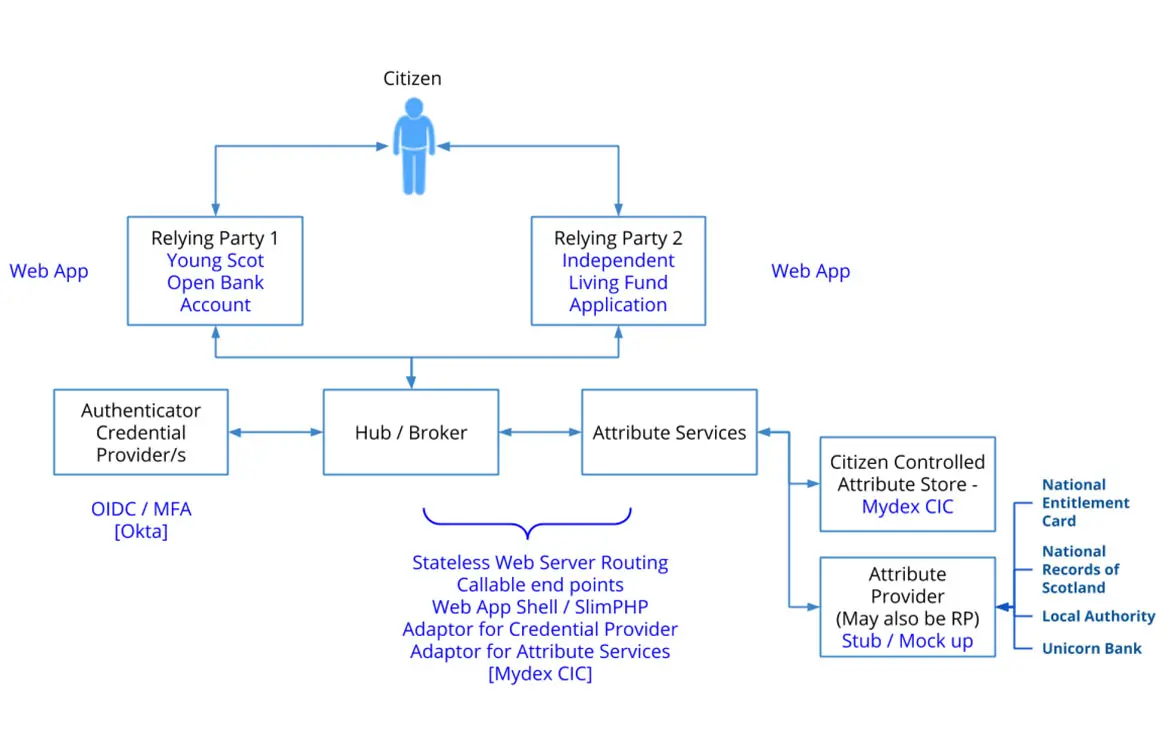
The Scottish Government is to pilot a national digital identity system that enables citizens to store their identity information in their own ‘Attribute Store’ and then “share these attributes with other public sector service providers as and when needed”.
The pilot is the next step in the Digital Identity Scotland (DIS) Programme and follows the publication of a report on a prototype test project carried out earlier this year.
Final Report — Attribute Prototype Project details the findings of a 10-week research project that enabled DIS to create a working prototype of an attribute-led digital identity system, test different user journeys and methods of multi-factor identity authentication, collect user responses from specific use cases, and identify key areas for ongoing investigation.
The working prototype “enables public sector organisations to provide individuals with verified attributes, for individuals to store these attributes in their own Attribute Store, and for these individuals to be able to share these attributes with other public sector service providers as and when needed,” the project report states.
“Initial methodologies for onboarding citizens and taking them through the journey, including giving consent to receiving and onward sharing of verified attributes, have been developed and tested,” it adds.
The prototype test found that “the conceptual architecture works and can be scaled relatively easily” and that “citizens understood easily the value to them of an attribute store in reducing the friction and effort in making online applications and the removal of repetitive form filling and provision of evidence in application processes and ongoing service engagement”.
Authentication
The project also trialled different ways of authenticating the identity of participants, including one-time codes sent via SMS, authentication apps, dynamic push notification, and biometric fingerprint and facial recognition.
“A number of ways of authenticating the identity of participants were tested,” the report says. “Some are already well understood by users, others less so.
“Also, not every service needs the same levels of assurance. A key finding of this project is the need for a ‘horses for courses’ approach to authentication, where the right user journey is identified for the right service, taking account of both user skills and comfort with different processes and services’ needs for different levels of assurance.”
The DIS’s live pilot will use “existing verified attribute sources to populate citizen Attribute Stores and two or more public services to act as relying parties. Ideally, a low-volume, low-risk starting point that offers high value in terms of learning and relevance.”
Next: Visit the NFCW Expo to find new suppliers and solutions